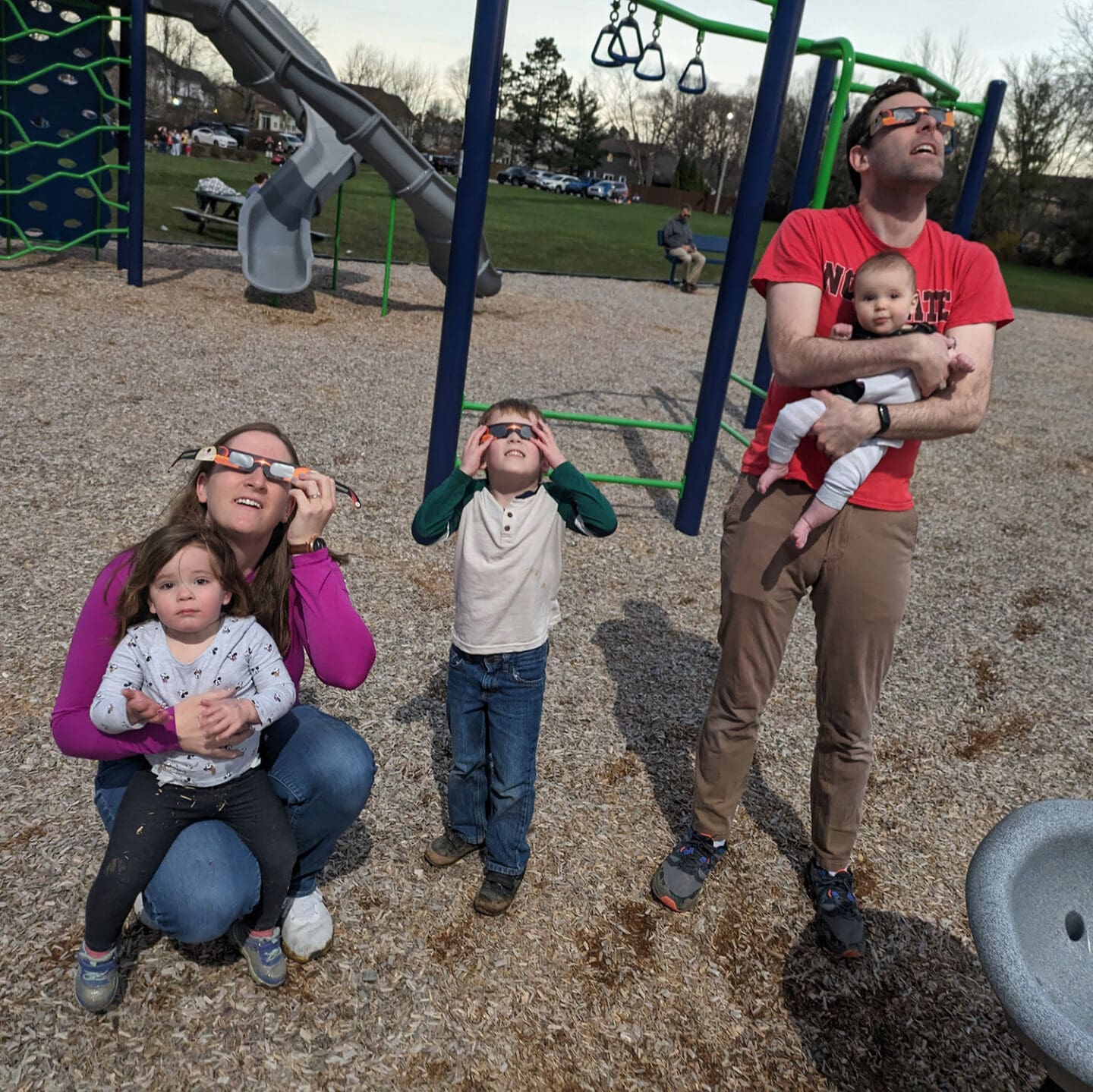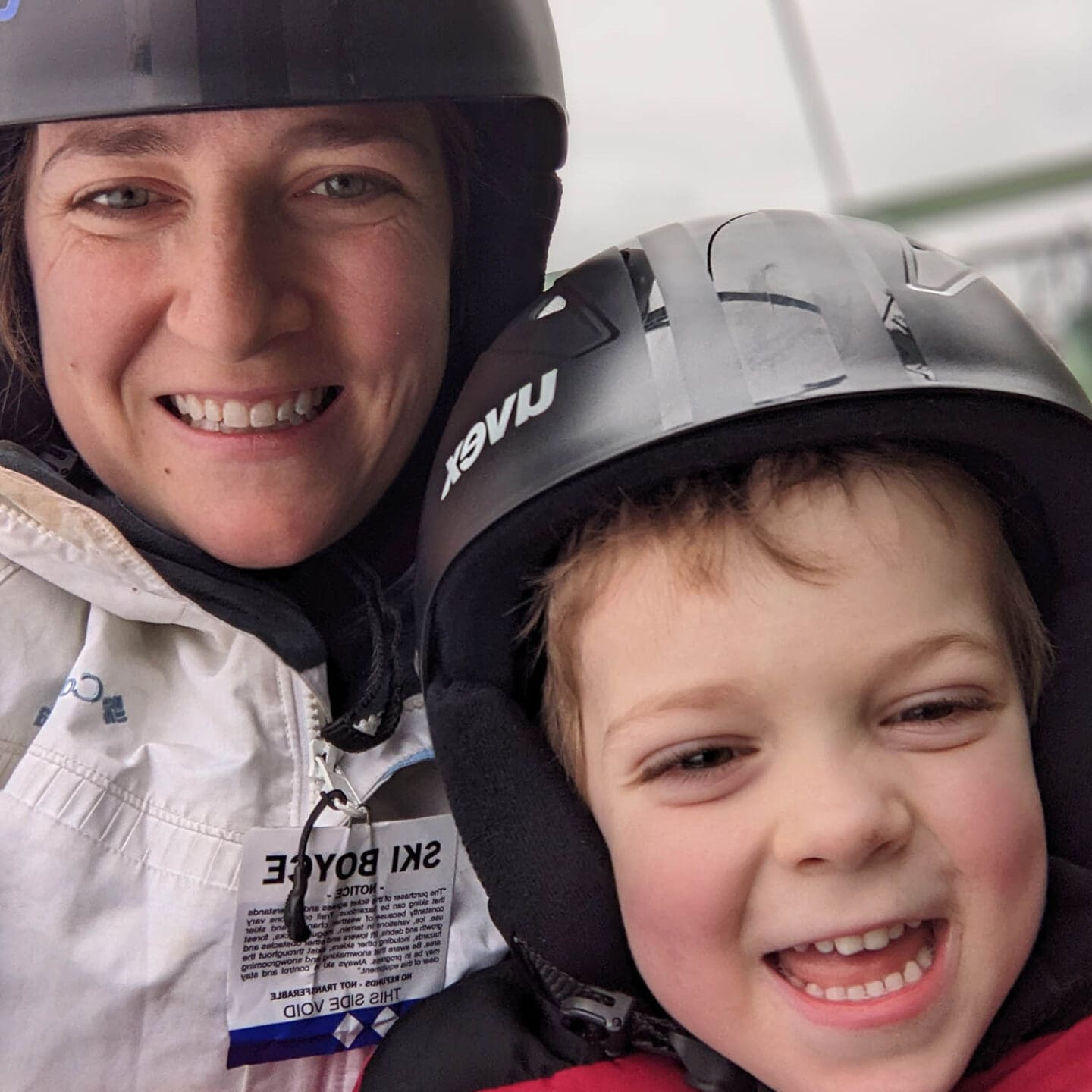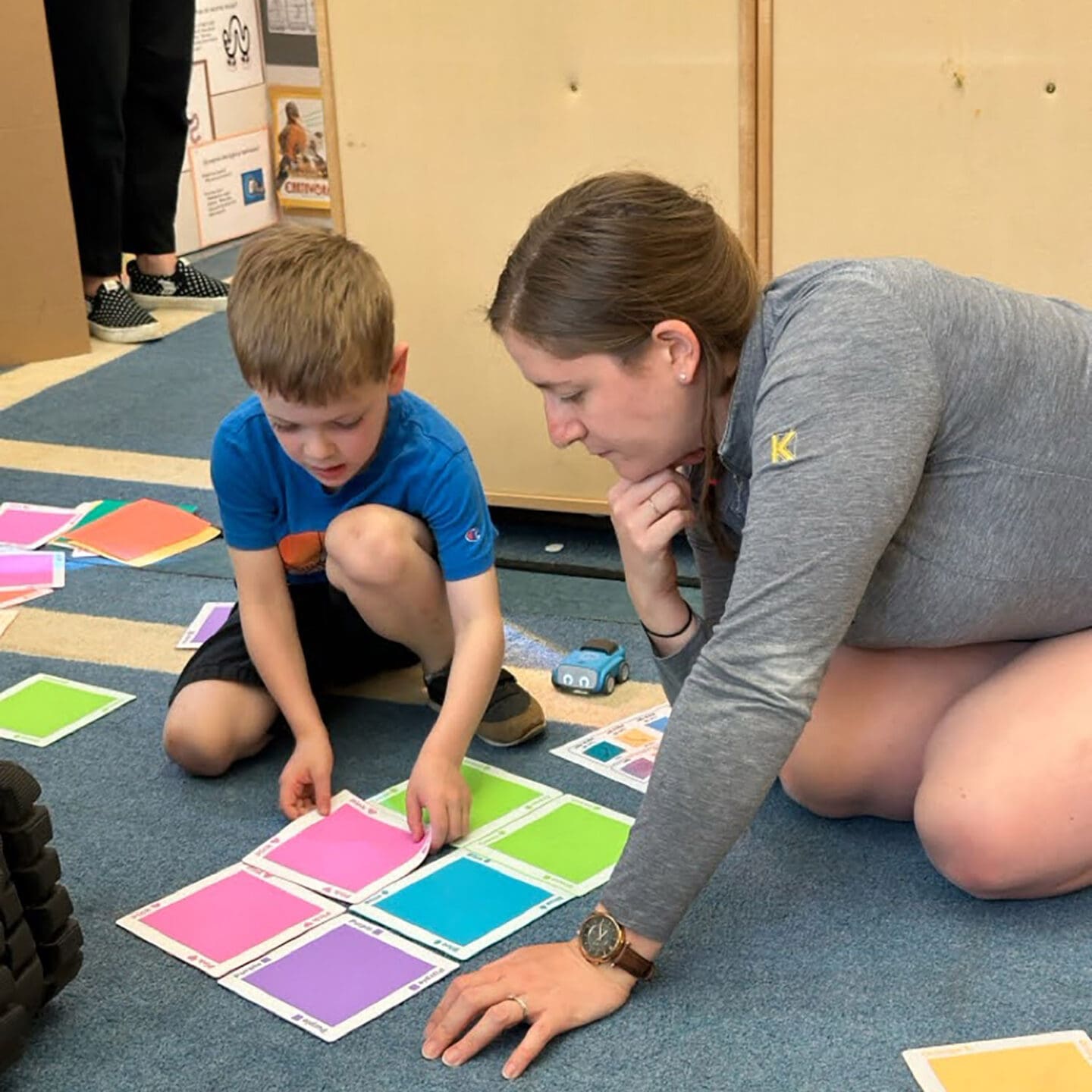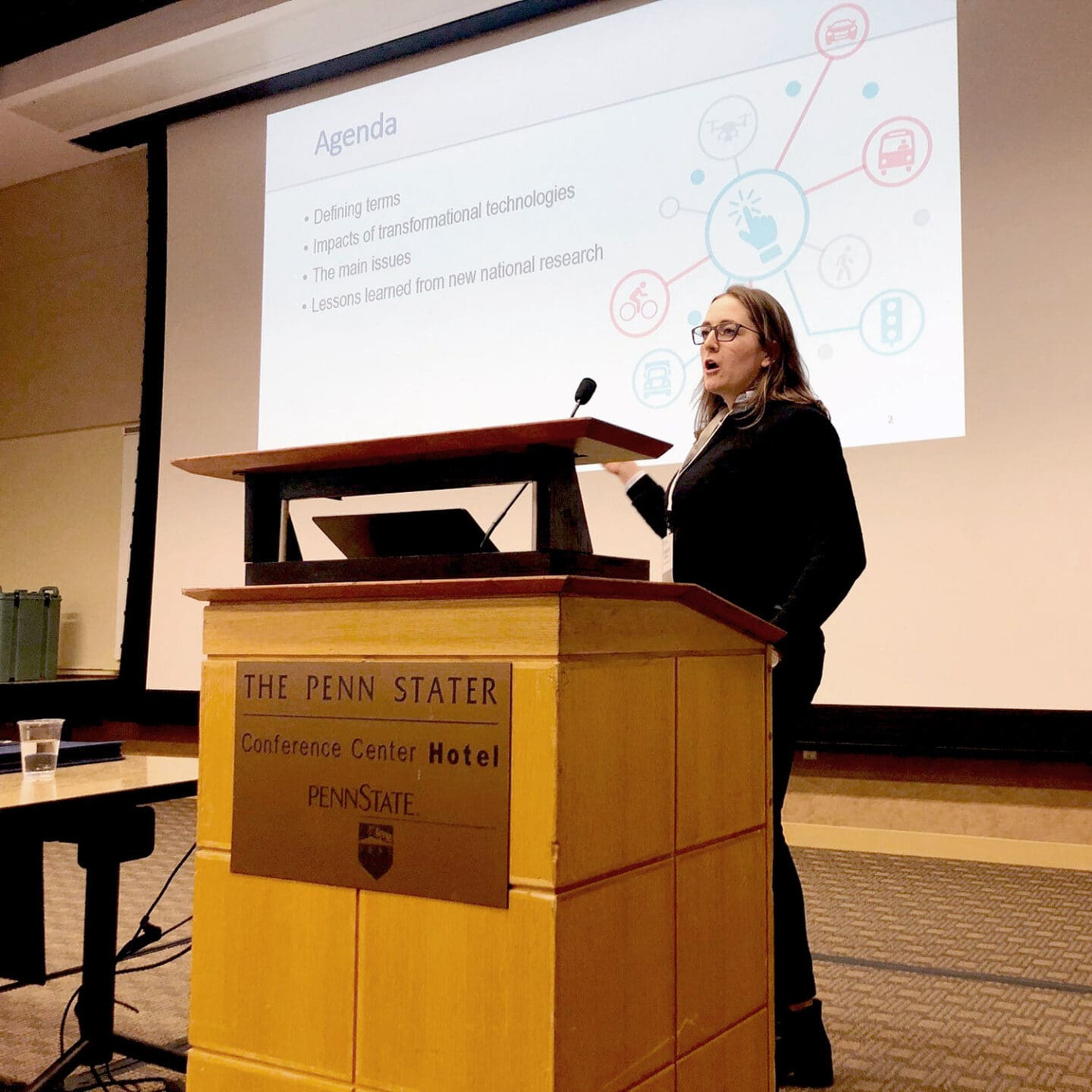“Transportation research strives to solve problems that practitioners face in their work and helps generate new ideas and innovations that can improve the transportation system and the quality of life for people.”
We’re an interconnected nationwide team, but we each have our own reasons for being passionate about the work we do. This month, get to know Shannon Warchol, associate engineer in our Wilmington office.
What’s your background?
I originally studied civil engineering with a focus on structures at Notre Dame, but after witnessing the I-35 W bridge collapse in Minnesota and being fascinated by the rapid response to redirecting traffic, I knew I wanted to get into transportation. I went on to get my master’s degree in transportation at North Carolina State University, where I met some Kittelson staff and worked on research projects with them while working as a non-faculty researcher. I then worked for an autonomous vehicle company in Pittsburgh for a while before joining Kittelson five years ago.
Living in Pittsburgh, after living and working in North Carolina, has changed my perspectives on transportation and how I live and work because there’s not a lot of land, and we’re constrained between rivers. My husband and I have three young children and only one car, but Pittsburgh is a very walkable city and we definitely take advantage of that! I don’t have many “hobbies” right now unless you consider one to be taking care of my kids, but I do enjoy listening to podcasts about the Supreme Court while working around the house and yard. I follow the court cases and love learning about the reasoning behind the court’s decisions. I joke that when I retire, I’m going to go to law school.


What motivated you to pursue the research route? Why is research so important for the transportation industry?
Seeing how research worked at NC State with a collection of staff who worked together on projects was a very unique, collaborative, and fun experience for me. Transportation research is particularly important because it strives to solve problems that practitioners face in their work, such as finding the best methods, tools, and practices for different situations and contexts. It also helps to generate new ideas and innovations that can improve the transportation system and the quality of life for people. At Kittelson, we have an entire research group that works on a variety of transportation topics and collaborates with universities and other organizations. We get to explore different questions and solutions that benefit the industry, and that’s something that’s pretty rare for consulting firms.
Because we have both the research side and the practice side, we can also work together to make research implementable. As a researcher, I get into the depths of a specific question and spend years studying it. Along the way, though, I always keep in mind I need to take the results and turn them into something that a practitioner can actually use. The big challenge is finding a practitioner who has the time and resources to implement the research—finding a practitioner who is really passionate about a topic makes implementing research so much easier.
How do you stay connected and involved while working with colleagues who are in other offices across the country?
I really make an effort to learn about people’s lives outside of work, so before Teams meetings, we can catch up on life and connect on a more personal level. Whenever I start a project with a staff member I haven’t met before, I always set up a meeting just to get to know them as a person. I also extend my trips when I travel to visit nearby offices and get to know the local staff. It’s easy to stay in your comfort zone and only talk to the people you know best, but I’m really mindful of who I talk to in offices or at conferences or events to prioritize people who I don’t know as well.


What qualities, experiences, and/or skills have helped you be successful so far in your career?
The biggest skill I’ve developed, that I didn’t realize would ever be useful, is extemporaneous speaking. I was on the speech team in high school and my specialty was extemporaneous speaking, which is a type of speech that is prepared in half an hour and delivered without a script or notes. Because I do a lot of trainings, presentations, and conference talks, this skill allows me to have confidence to speak freely and have a sense of what the structure of the conversation or presentation should be. It saves me a ton of time when preparing!
How do you stay current with industry developments and advancements?
It’s not easy to stay on top of all the latest advancements, especially because the breadth of what I study is pretty wide. But I have found some good aggregators email systems, such as from AASHTO, that send daily or weekly updates on various topics. The tricky part is to make sure I take the time to read them regularly even when I have other emails in my inbox. I’ve also found it helpful to read agendas of committee meeting, like FHWA’s ATSPM meetings, to keep a pulse on what’s happening in that area.
